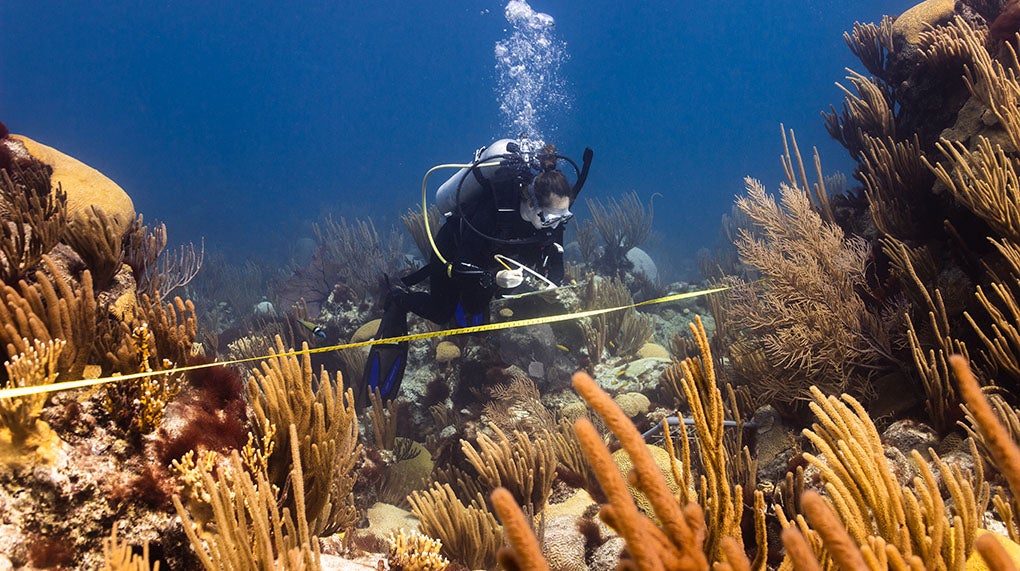Lead Instructor: Dr. Stuart Robertson (ASU BIOS)
Co-instructors: Dr. Chloe Carbonne (ASU BIOS) and Dr. Brett Jameson (ASU BIOS)
Course Overview
The overall aim of this course is to study the biology and ecology of tropical corals as well as exploring their response to environmental changes, including those driven by projected global climate scenarios. The course examines the biological, physical, biogeochemical, and evolutionary processes that determine reef growth, function, and resilience, spanning scales from individual organisms to entire reef systems. Topics include coral metabolism and physiology at cellular, organismal, and community levels; determinants of community structure and diversity, focusing on trophic dynamics and species interactions; and reef resilience and acclimatization to environmental change, with an emphasis on reproduction, recruitment, symbiosis, and evolution.
Lectures will be complemented with field and laboratory exercises, where students will gain first-hand experience in coral reef research methods and health monitoring. Field activities include benthic surveys, water quality analysis, assessments of coral recruitment and recovery, bleaching and disease monitoring, fish ecology, and nocturnal reef observations. Laboratory experiments will focus on coral physiology, including symbiosis, metabolism, and environmental stress responses.
The Coral Reef Ecology course at ASU BIOS is an intensive and integrated program aimed at upper-level undergraduates, graduate students, and professionals. The course consists of lectures, precepts, laboratory exercises, field (SCUBA) surveys, and readings from primary literature, with attention given to active areas of research. It also includes input from current coral researchers working at ASU BIOS (including Dr. Chloe Carbonne and Dr. Brett Jameson), providing students with insights into ongoing studies and real-world applications. The program includes the development of an oral presentation, where students will analyze and present findings from field and lab data collected during the course. The course syllabus and further information can be found here.
Prerequisites:
• Completion of University-level Biology and Ecology courses; Marine Science desirable.
• The course will require boat work and the ability to work comfortably in the water with a mask and snorkel. SCUBA certification is highly recommended, as those who are SCUBA certified* will be able to undertake fieldwork underwater and learn scientific diving skills.
*To be permitted to dive at ASU BIOS participants must complete, and return to the Dive Safety Officer, various forms and meet certain health safety standards, which will require a physical examination from a health practitioner prior to arrival in Bermuda. The student dive information package (SDIP), including all such forms and supplemental information, will be provided after notification of acceptance to this course. Diving participants must already be SCUBA certified (minimum of open water certified or internationally recognized equivalent). A minimum of 12 dives and at least one dive in the past six months is highly recommended.
